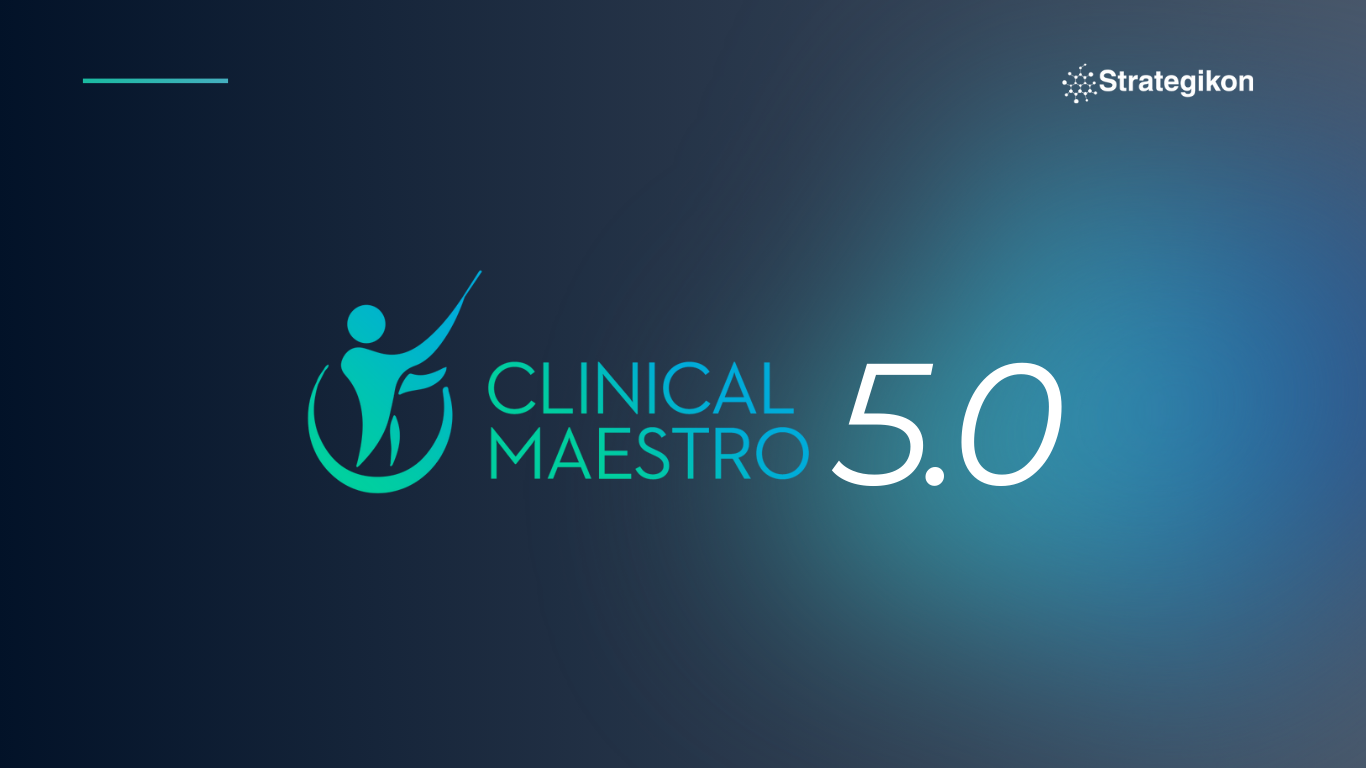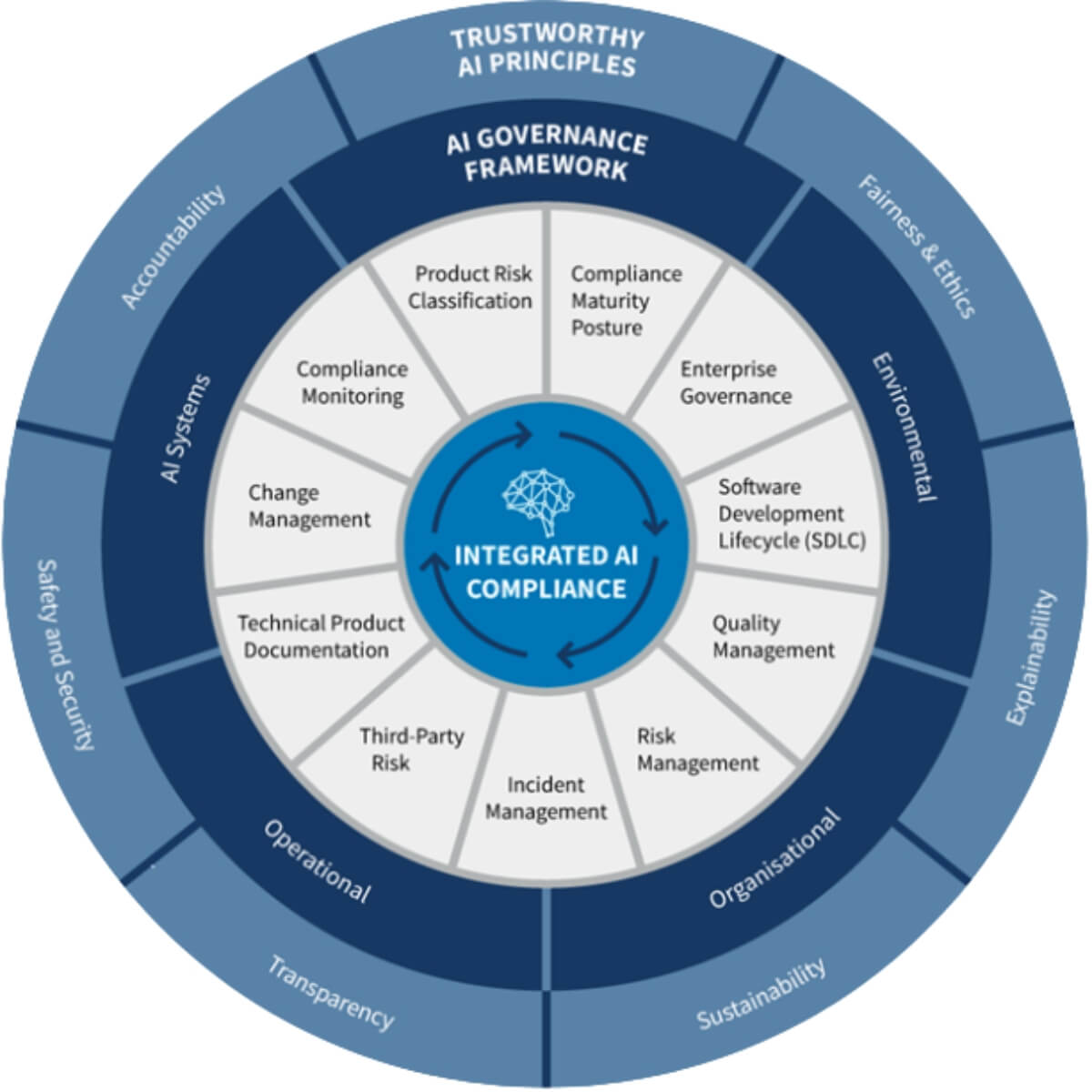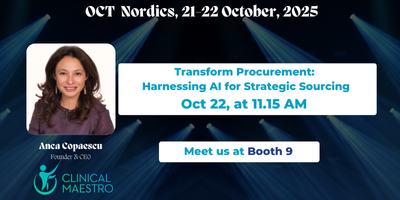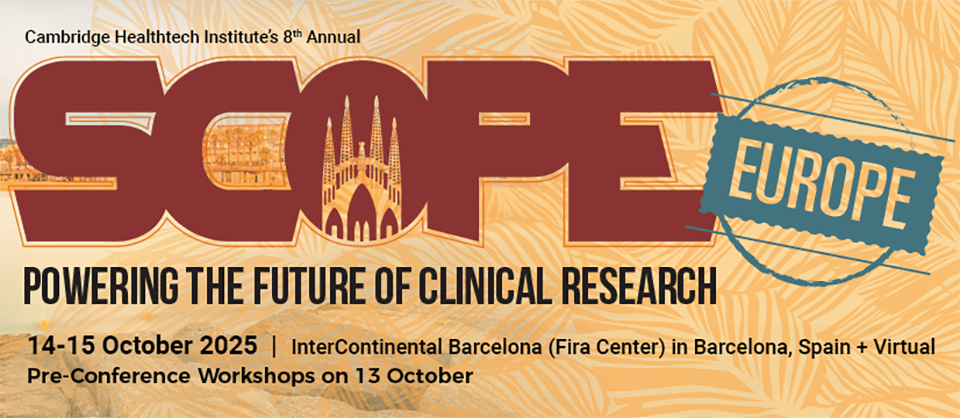
In this interview
Strengthen your processes and increase data-driven decision-making for faster study start-ups.
Strengthen your processes and increase data-driven decision-making for faster study start-ups.
Strategikon
Thanks for talking with us today, Ineke. Regarding the improvement of the clinical trial planning and contracting processes – what areas offer the greatest impact?
Ineke Rijnhout
At both CROs and Sponsors, most budget planning is done using Excel spreadsheets. The smaller the company, the more likely it is that they are building budgets, essentially from scratch, in Excel. Obviously, this takes time – often weeks – to complete an acceptable plan. Next, generating the RFP is a grueling effort. Overall, when relying on spreadsheets, accuracy is a challenge. You have to maintain oversight of the assumptions, make updates, and track the updates manually in spreadsheets. Once the project starts, any retrospective analysis of the assumed versus actual budgets is another a manual effort. If the project is well managed you may get help from your CRO, but of course the CRO is part of what you’re trying to measure. So the current process is hard, it takes too long, and it’s not all that accurate. There are plenty of elements to improve.
Strategikon
How can technology change contracting and governance?
Ineke Rijnhout
A great example comes from a project where I managed two similar studies, one in Excel and the other in Clinical Maestro.
In Excel it took a couple of weeks to build our probable scenario. After we issued the RFP, it was extremely time-consuming to put together all the assumptions and review the responses, which were also Excel-based. It took three weeks to thoroughly analyze the proposals and then another three months to negotiate a final contract. In total, over five months – a very lengthy process. To be fair, the negotiation took longer because we knew the numbers were too high but we didn’t have good data to back up the numbers we were asking for. Without clear specifications up front, we didn’t have a good reason for saying why the budget should be less even though our analysis and previous experience told us it should be.
Our experience using Clinical Maestro was refreshingly different. We built the budget as a team effort in one hour and it guided us to define very clear assumptions that we could share with the CROs. As a result, the responses we received were more ‘apples to apples’. We saw exactly how much each bid per item and what their assumptions were. From this point, we were able to actually reduce our final budget 20% from the original bid and 25% less than our original estimate – that’s a significant number! We would not have been able to do this in Excel. Essential to our results was the ability to build the budget in Clinical Maestro with the team and generate a solid starting point for what the budget should be.
Clinical Maestro made it easy to run alternate scenarios to see what the effect would be. The CROs provided scenarios based on their recommended efficiencies and we tested those scenarios based on our parameters. This was critical for how we came to an optimal scenario for our program. We both were looking for efficiencies in the tactical planning of the study and because the process was so transparent, we were able to collaborate on the best approach.
Finally, we added questions in our RFP that you might normally raise in an RFI. When the service providers entered their information in the tool we didn’t have to go back and forth between RFI and RFP documents – it’s an all-in-one tool so we could see each responders’ experience, rate cards, the systems that they use, and CVs etc. It was all there in one system which made it easier for the team to review and rate. For the CRO it was easier because they uploaded it once instead of having to overnight the materials with no idea whether everyone got a chance to see that information or not. From a client perspective it gives you good oversight and strong controls for document version management.
Strategikon
What is the right level or role that should be most concerned about the issues that you’ve highlighted?
Ineke Rijnhout
In small biotech and pharma companies the chief financial officers should really be focused on addressing these issues. They’re the ones who need to report to the investors every month and need to know what’s going on with the budgets and demonstrate that they’re being as efficient as possible. In CROs, the head of business development or whoever is responsible for the business proposal team should be extremely interested. The hook for CROs is that a solution to these issues will help them deliver very accurate bids faster and more efficiently. In short, it would help business teams win more deals. For larger companies you can add the head of clinical operations because the operations staff spends a lot of time on proposal generation and analysis. Using purpose-made technology solutions like Clinical Maestro makes it easier for Sponsors to clarify their specifications and manage the overall process. This clarity translates into greater transparency and efficiency for Sponsors and Service Providers, alike.
About the Expert

Ineke Rijnhout
Clinical Business Operations Consultant based in the Netherlands
Ineke Rijnhout offers business operations guidance and entrepreneurial energy to biotechnology start-ups, CROs and service providers. Ineke’s career began on the front lines as a clinical research scientist for GSK. That was quickly followed by senior clinical research and business development roles in large pharma, small biotech and top 10 CROs. She now has more than 20 years of international experience in the industry adding to both her strategic and her operational knowledge. Ineke’s expertise in commercial development, supplier negotiations, trial planning, and business development brings a wide-ranging perspective to our conversation about ways to plan and outsource clinical trials more efficiently with less stress
In this interview
Strengthen your processes and increase data-driven decision-making for faster study start-ups.
RESOURCES
Explore Expert Insights and Resources for Clinical Excellence

Webinars
AI is everywhere these days — but it’s also confusing. What exactly is it? Does it actually work? Why do some companies restrict its use? Are all “AI” tools created equal? And how do generative and agentic AI differ? Join Clinical Maestro’s live webinar to cut through the noise and explore what’s real vs. hype in AI for clinical outsourcing and procurement.

Blogs
Strategikon launches Clinical Maestro® 5.0 with Clinical Maestro AI — transforming clinical outsourcing. Learn how sponsors and CROs benefit from vendor intelligence, rate card compliance, change order simplification, and cost transparency.

Case Studies
Faced with inefficiencies, compliance risks, and fragmented communication, a biopharma company dramatically enhanced its vendor governance by implementing VISION!
DEMO
Request a demo
Discover how Strategikon’s advanced solutions can streamline your clinical trial operations. Request a personalized demo to explore how our tools transform budgeting, vendor management, and outsourcing efficiency for pharma and biotech.



















